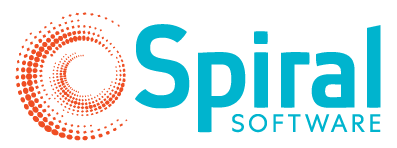
DOMAIN C - CORTICOSTEROID

THE REMAP-CAP COVID-19 CORTICOSTEROID DOMAIN CLINICAL TRIAL
This is a domain within REMAP-CAP to test the effectiveness of systemic corticosteroids in patients with severe community-acquired pneumonia (CAP) who are admitted to an Intensive Care Unit (ICU). Evidence regarding corticosteroid use for severe coronavirus disease 2019 (COVID-19) is limited. The objective of this domain within the REMAP-CAP trial is to determine whether hydrocortisone improves outcomes for patients with severe COVID-19.
The main question posed within this domain is whether or not intravenous hydrocortisone, administered either as a 7-day fixed-dose course or restricted to when shock is clinically evident, improve 21-day organ support–free days (a composite endpoint of in-hospital mortality and the duration of intensive care unit-based respiratory or cardiovascular support) in patients with severe coronavirus disease 2019 (COVID-19)?
In this bayesian randomized clinical trial that included 403 patients and was stopped early after results from another trial were released, treatment with a 7-day fixed-dose course of hydrocortisone or shock-dependent dosing of hydrocortisone, compared with no hydrocortisone, resulted in 93% and 80% probabilities of superiority, respectively, with regard to the odds of improvement in organ support–free days within 21 days.
Primary Outcome: The primary endpoint for this domain is the REMAP primary outcome (all-cause mortality at 90 days).
Corticosteroids for COVID-19: New Evidence of Benefit




BACKGROUND
There is significant uncertainty regarding the use of corticosteroids in patients with CAP who are treated in an ICU. This uncertainty applies to both patients with and without septic shock secondary to CAP. The existing evidence is derived from trials that enrolled overlapping populations. Some trials enrolled patients with septic shock, many of whom had CAP as the source of sepsis, and other enrolled patients with severe CAP, but only a proportion of these patients had septic shock. These trials have largely utilized hydrocortisone as the corticosteroid but have employed a range of doses and delivery strategies (infusion versus intermittent dosing).
Several studies and meta-analyses of randomised controlled trials (RCTs) have indicated that benefits may exist. However existing evidence is not sufficient to provide guidance to clinicians that is definitive. If there is a benefit, there is limited evidence to suggest that benefit is more likely in patients who are more severely ill. It is also recognised that corticosteroids have a range of potentially adverse affects. Clinicians remain uncertain about the role of corticosteroid treatment in patients with severe CAP. This uncertainty necessitates the conduct of a large pragmatic study to address this question and provide definitive guidance to clinicians.
This is a domain within the REMAP-CAP to test the effectiveness of systemic corticosteroids in patients with severe community-acquired pneumonia (CAP) who are admitted to an Intensive Care Unit (ICU).
Several studies and meta-analyses of randomised controlled trials (RCTs) have indicated that benefit may exist. However, existing evidence is not sufficient to provide guidance to clinicians that is definitive.
DOMAIN OBJECTIVES
The objective of this domain is to determine the effectiveness of different strategies of corticosteroid utilisation in the treatment of severe CAP. It was hypothesised that the probability of all-cause mortality at 90 days after enrollment will differ based on the allocated corticosteroid strategy. The following interventions will be available:
• No corticosteroid (hydrocortisone is not prescribed; no other corticosteroid is permitted; no administration of a placebo)
• Fixed duration hydrocortisone (IV hydrocortisone 50mg every 6 hours for 7 days) Not for IRB Submission REMAP-CAP Corticosteroid Domain-Specific Appendix Version 3 dated 12 July 2019 CONFIDENTIAL Page 18 of 29
• Shock-dependent duration hydrocortisone (IV hydrocortisone 50mg every 6 hours while in septic shock)
It was hypothesised that the treatment effect of different corticosteroid strategies would be different depending on the presence or absence of shock at the time of enrollment (strata-by-intervention interaction).
It was hypothesised that the treatment effect of different corticosteroid strategies is different depending on the presence or absence of influenza infection at the time of enrollment (strata-by intervention interaction).
It was hypothesised that the treatment effect of different corticosteroid strategies is different depending on allocation status in the Antiviral Domain.
This is a treatment-by-treatment interaction between the interventions in the Corticosteroid Domain and the Antiviral Domain. The analytic structure of this domain enables several questions to be addressed. First, is the effect of corticosteroids for CAP general to all of CAP, or different in the subset with shock? Second, is the effect of corticosteroids for CAP general to all of CAP, or different in the subset with influenza? Third, is the effect of corticosteroids different when titrated to the period where the patient is clinically in septic shock, rather than by administering a fixed one-week course?
TRIAL DESIGN
This was an ongoing adaptive platform trial testing multiple interventions within multiple therapeutic domains, for example, antiviral agents, corticosteroids, or immunoglobulin. Between March 9 and June 17, 2020, 614 adult patients with suspected or confirmed COVID-19 were enrolled and randomized within at least 1 domain following admission to an intensive care unit (ICU) for respiratory or cardiovascular organ support at 121 sites in 8 countries. Of these, 403 were randomized to open-label interventions within the corticosteroid domain. The domain was halted after results from another trial were released. Follow-up ended August 12, 2020.
The REMAP-CAP enrols patients with severe CAP admitted to ICU.
The trial was designed with no maximum sample size, given the uncertainty of the pandemic.
Patients are eligible for this domain if they meet all of the platform-level inclusion but will not be eligible if they have the following:
Known hypersensitivity to hydrocortisone
Intention to prescribe systemic corticosteroids for a reason that is unrelated to the current episode of CAP
More than 24 hours have elapsed since ICU admission
The treating clinician believes that participation in the domain would not be in the best interests of the patient
In this domain of the REMAP-CAP trial, participants with community-acquired pneumonia admitted to participating intensive care units will be randomised to receive one of up to three steroid-use strategies depending on availability and acceptability:
No corticosteroid including hydrocortisone (no placebo)
Fixed duration hydrocortisone for 7 days
Shock-dependent hydrocortisone while the patient is in septic shock
RESULTS
After excluding 19 participants who withdrew consent, there were 384 patients (mean age, 60 years; 29% female) randomised to the fixed-dose (n = 137), shock-dependent (n = 146), and no (n = 101) hydrocortisone groups; 379 (99%) completed the study and were included in the analysis.
The mean age for the 3 groups ranged between 59.5 and 60.4 years; most patients were male (range, 70.6%-71.5%); mean body mass index ranged between 29.7 and 30.9; and patients receiving mechanical ventilation ranged between 50.0% and 63.5%.
For the fixed-dose, shock-dependent, and no hydrocortisone groups, respectively, the median organ support-free days were 0 (IQR, -1 to 15), 0 (IQR, -1 to 13), and 0 (-1 to 11) days (composed of 30%, 26%, and 33% mortality rates and 11.5, 9.5, and 6 median organ support-free days among survivors).
The median adjusted odds ratio and bayesian probability of superiority were 1.43 (95% credible interval, 0.91-2.27) and 93% for fixed-dose hydrocortisone, respectively, and were 1.22 (95% credible interval, 0.76-1.94) and 80% for shock-dependent hydrocortisone compared with no hydrocortisone. Serious adverse events were reported in 4 (3%), 5 (3%), and 1 (1%) patients in the fixed-dose, shock-dependent, and no hydrocortisone groups, respectively.
Among patients with severe COVID-19, treatment with a 7-day fixed-dose course of hydrocortisone or shock-dependent dosing of hydrocortisone, compared with no hydrocortisone, resulted in 93% and 80% probabilities of superiority with regard to the odds of improvement in organ support–free days within 21 days. However, the trial was stopped early and no treatment strategy met prespecified criteria for statistical superiority, precluding definitive conclusions.




